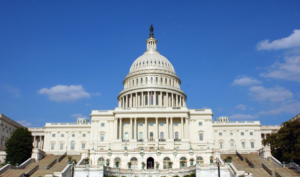Abortion care providers prepare for Texas gestational ban

A group of Texas abortion fund and clinic providers filed suit in a Texas state court last week to stop the state’s new law from going into effect. But because the law is new territory, providers, abortion fund organizations and legal experts in New Mexico are watching to see if the court blocks the law with an injunction and, if not, how large the ripple effect could be felt in this neighboring state.
Ellie Rushforth, an attorney with the American Civil Liberties Union of New Mexico called the Texas law not just unconstitutional but “sinister.”
“The point of this [Texas] law is to instill fear and place a bounty on the head of anyone who is providing abortion care or helping people get the care they need. It’s inviting and encouraging complete strangers to stake out and continue to harass abortion providers and networks of care,” she said.
The Texas law allows citizens in that state to sue another person who they suspect has provided an abortion in Texas as well as to sue anyone who has aided an abortion patient who obtained the service in Texas. This could include a car service driver or a friend or volunteer who waits at the clinic for the patient to provide support, Rushforth said.
Whether the law would allow a Texas citizen to sue a New Mexico entity who aids a Texas abortion patient to access care in New Mexico is difficult to speculate on because the law is unprecedented, Rushforth said. But she said it seems unlikely.
The law allows the person who files suit to sue for a minimum of $10,000 plus legal costs and attorney’s fees. There is no cap on how much a person can sue, Rushforth said.
“This law allows anyone [in Texas] to impose their personal views on a stranger having no idea what that person is going through, what their personal circumstances are and saying ‘I know what is best for you.’ It’s an incredibly paternalistic, misogynist and racist law,” Rushforth said.
Women’s health advocates and abortion providers in New Mexico expect to still feel the effects of the law. When Texas Gov. Greg Abbott declared abortion care as “nonessential” medical care in March 2020, and forced abortion clinics to close until late April because of the COVID-19 pandemic, New Mexico abortion clinics saw an increase.
“After the governor of Texas declared abortion ‘non-essential’ at the end of March [2020], we tracked a twelvefold increase in patients from Texas coming to our health centers seeking abortion care in the month of April compared to February [2020],” Neta Meltzer, director of strategic communications with Planned Parenthood of the Rocky Mountains wrote to NM Political Report in an email.
But the Texas law is not the only TRAP law (Targeted Restrictions on Abortion Providers) that has passed this year.
New Mexico is one of the very few states to pass pro-abortion legislation this year when Gov. Michelle Lujan Grisham signed SB 10, the Respect New Mexico Women and Families Act into law in February. The new law repealed an antiquated statute that could have made abortion illegal with very few exceptions if Roe v. Wade is overturned.
But, the Guttmacher Institute, which researches abortion care, reported earlier this month that state legislatures have passed 90 abortion restrictions in the first six months of 2021. Prior to this year, 2011 was the year with the highest number of state legislatures passing abortion restrictions. In that year, state legislatures adopted 70 restrictions on abortion, according to the Guttmacher Institute.
“There’s a wave of really oppressive and violently oppressive laws making their way through the country,” Rushforth said.
Joan Lamunyon Sanford, executive director of New Mexico Religious Coalition for Reproductive Choice, said the organization saw a modest increase in abortion care patients seeking assistance to access abortion in New Mexico from 2019 to 2020. In both of those years, New Mexico Religious Coalition for Reproductive Choice, which provides help with travel, housing and meal costs, helped over 200 patients each year. But in the first six months of 2021, the coalition has helped 150 patients.
“At first we thought [the increase was due to] politicians in states that are hostile to abortion using the pandemic as an excuse to close clinics but those clinics reopened fairly quickly but people are still struggling, still trying to find work and still trying to catch up and so we’ve continued to see an increase in callers. People living on the margins of the economy is still a factor in whether or not they grow their families,” she told NM Political Report.
Meltzer said the organization anticipates that it could see an increase in abortion care patients starting in September from Texas if the courts allow the Texas six-week gestational ban to go into effect.
Rushforth said that if the Texas courts do not impose a permanent injunction on the Texas law, the law will cause chaos and irrevocable harm to Texans who need abortion care. When Texas passed a law in 2013 that declared that Texas abortion providers had to have admitting privileges at a nearby hospital, half of the abortion clinics in that state closed, Rushforth said.
The law was struck down by the U.S. Supreme Court in 2016.
Meltzer said that if the Texas law is allowed to survive, it will “reinforce a culture of silence” that encourages the stigma that exists around abortion care.
“This law will isolate people seeking abortion by targeting their entire support network and discouraging their loved ones from helping them for fear of being sued. Patients may be scared to have an open conversation about their decision to have an abortion for fear of putting a loved one or other trusted person in legal jeopardy,” Meltzer wrote.
Meltzer said the Texas law, if it goes into effect, would be “the harshest and most extreme abortion ban in the country.”
This article was originally posted on Abortion care providers prepare for Texas gestational ban





